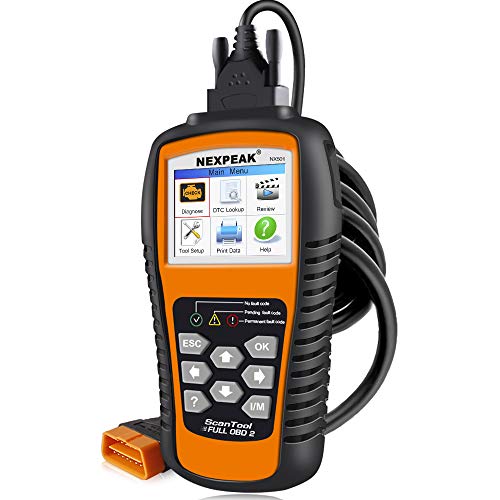Is your car making strange noises that you can’t quite identify? It might be telling you something important about your fuel quality. When bad gas infiltrates your vehicle’s system, it often announces itself through distinctive sounds that shouldn’t be ignored.
We’ve all experienced that moment of concern when our reliable ride suddenly starts performing differently. Bad gas typically manifests as pinging, knocking, or sputtering sounds, especially during acceleration. These audible warnings are your engine’s way of communicating that something’s wrong with the fuel it’s receiving. Understanding these sounds can save you from costly repairs and keep your vehicle running smoothly for miles to come.
Understanding Bad Gas in Vehicles
Bad gas refers to contaminated, stale, or incorrect fuel that enters your vehicle’s tank. This problematic fuel contains impurities, water, or sediment that disrupt normal engine operation. Contamination typically occurs at the gas station due to old storage tanks, during extreme weather conditions, or when water infiltrates fuel systems.
The most common types of bad gas include:
- Water-contaminated fuel – Results from condensation or leaky storage tanks
- Stale fuel – Gasoline that has deteriorated over time, losing its combustible properties
- Improper octane rating – Using lower octane than your engine requires
- Ethanol-rich mixtures – Excessive ethanol content that can damage fuel components
- Dirty fuel – Contains sediment, rust particles, or other debris
Cars react differently to fuel issues based on their design, age, and sensitivity. Modern vehicles with electronic fuel injection systems often display check engine lights when detecting fuel problems, while older carbureted engines might simply run poorly without warning indicators.
The engine’s combustion process requires precise fuel-air mixtures for optimal performance. When bad gas enters the system, this balance gets disrupted, causing incomplete combustion, reduced power, and the distinctive sounds we’ve discussed previously.
Telltale Sounds of Bad Gas in Your Car

Bad gas creates distinctive noises that alert drivers to fuel quality issues. These characteristic sounds serve as early warning signs that shouldn’t be ignored if you want to protect your engine from potential damage.
Sputtering and Misfiring Noises
Engine sputtering directly signals fuel combustion problems caused by contaminated gasoline. Your car’s engine might stumble or hesitate, particularly during acceleration or when trying to maintain consistent speed. This irregular performance occurs because the engine can’t properly burn the degraded fuel, causing uneven power delivery. Many drivers describe this sound as a choppy, inconsistent rumbling that disrupts the normal smooth operation of their vehicle.
Pinging and Knocking Sounds
Sharp pinging or metallic knocking noises from under the hood indicate premature fuel ignition issues. These sounds materialize when bad gas combusts too quickly in the engine cylinders, creating an audible knock that differs dramatically from your engine’s normal harmonious operation. Contaminated or old gasoline often burns unevenly, producing these distinct percussion-like sounds that seem to follow the rhythm of your engine’s revolutions. Listen carefully for these high-pitched metallic noises, especially when accelerating or climbing hills.
Rough Idle Rumbling
Rough idle manifests as an uneven, jittery engine operation when your car isn’t moving. Your vehicle might shake noticeably at stoplights or while parked with the engine running, accompanied by fluctuating RPM readings on your tachometer. This rumbling occurs because bad gas prevents consistent combustion, forcing the engine to work harder just to stay running. Cars experiencing this symptom often require extra throttle input to prevent stalling, and in severe cases, the engine might cut out entirely without warning. The sound resembles a choppy, unbalanced rumble rather than the steady purr of a healthy engine.
Other Signs That Accompany Bad Gas Sounds

While unusual sounds are primary indicators of fuel problems, other symptoms often accompany these noises when your car has bad gas. These additional signs help confirm fuel quality issues and shouldn’t be overlooked when diagnosing problems with your vehicle.
Performance Issues
Performance problems typically emerge alongside the strange sounds of bad gas in your engine. Cars struggling with contaminated fuel often hesitate noticeably during acceleration, making it difficult to increase speed smoothly, especially at highway velocities. Irregular speed changes occur without warning as the engine receives inconsistent fuel supply, causing the vehicle to feel sluggish or unresponsive to your commands. Starting troubles represent another common issue, with engines either failing to start completely or turning over briefly before stalling out immediately. These performance deficits directly result from poor combustion caused by fuel impurities interfering with normal engine operation.
Strange Exhaust Odors
Unusual smells frequently signal fuel problems along with abnormal engine sounds. Opening your gas tank cap might reveal a more pungent or off-putting fuel odor than normal gasoline typically produces, indicating contamination or degradation of the fuel inside. Exhaust emissions often carry distinctive scents when bad gas burns incompletely in the combustion chamber. Poor combustion creates stronger or unusual exhaust fumes as the engine struggles to process low-quality fuel efficiently. These odor changes serve as important sensory clues that complement the auditory warnings your car provides when dealing with substandard gasoline.
What Causes Bad Gas in Cars

Bad gas in vehicles stems from various sources that compromise fuel quality and engine performance. These contaminants interfere with proper combustion, leading to the distinctive sounds and performance issues discussed earlier. Let’s examine the most common causes of fuel problems in vehicles.
Low Octane Issues
Filling your tank with lower octane fuel than your vehicle requires commonly leads to engine knocking or pinging sounds. This mismatch occurs when the fuel ignites prematurely in the combustion chamber before the spark plug fires. Modern engines with higher compression ratios typically demand higher octane ratings to prevent this pre-ignition. Cars designed for premium fuel (91-93 octane) may experience important performance problems when running on regular gas (87 octane), including reduced power output and those characteristic knocking sounds during acceleration.
Water Contamination
Water infiltration represents one of the most destructive forms of fuel contamination. Moisture enters fuel systems through corroded underground storage tanks at gas stations, condensation in partially filled gas tanks, or even intentional tampering. The presence of water disrupts normal combustion, causing rough idling, stalling, and sputtering as the engine attempts to burn the contaminated mixture. Since water and gasoline don’t mix properly, this contamination often results in irregular fuel delivery to the engine, creating those distinctive sputtering sounds and performance hiccups that indicate serious fuel issues.
Fuel Degradation
Gasoline deteriorates over time, breaking down chemically and developing sediment that clogs fuel systems. Old fuel sitting in a tank for more than 30 days begins to oxidize, forming gummy deposits that can obstruct fuel injectors and filters. These impurities prevent proper atomization of fuel in the combustion chamber, resulting in rough running conditions and distinctive misfiring sounds. Seasonal fuel blends also affect degradation rates, with summer blends deteriorating faster than winter formulations. Vehicles that sit unused for extended periods frequently develop these fuel degradation issues, manifesting as hard starting, inconsistent idling, and poor acceleration when they’re finally driven.
How to Fix Bad Gas Problems

Addressing bad gas issues promptly prevents long-term engine damage and restores normal performance. We’ve compiled effective answers to tackle fuel quality problems in your vehicle.
Immediate Answers
A fuel system flush eliminates contaminants and impurities that cause those troubling engine sounds. Check your gas cap first to ensure it’s properly sealed, as loose caps allow contaminants to enter and fuel vapors to escape. Replace clogged fuel filters that restrict proper fuel flow and contribute to combustion problems. Modern vehicles often benefit from fuel additives designed to neutralize water contamination and clean fuel injectors. Professional mechanics can diagnose persistent issues through specialized equipment that identifies exactly what’s contaminating your fuel system.
Preventative Measures
Using fresh gasoline from reputable stations dramatically reduces your risk of encountering contaminated fuel. Reputable gas stations maintain their underground storage tanks properly, preventing corrosion that leads to fuel contamination. Add a quality fuel stabilizer when storing vehicles for extended periods to prevent gasoline from breaking down. Regular fuel system maintenance, including filter replacements and injector cleaning, keeps components functioning optimally. Monitor your vehicle’s response when filling up at new stations—any immediate performance changes might indicate problematic fuel sources. Filling your tank when it’s half-full rather than nearly empty reduces the chance of picking up sediment that settles at the bottom of the fuel tank.
Conclusion
Recognizing the distinctive sounds of bad gas in your car is crucial for prompt intervention and prevention of serious engine damage. Those pings knocks and sputters aren’t just annoying—they’re your vehicle’s way of alerting you to fuel quality issues.
By understanding what these sounds mean and taking immediate action like fuel system flushes or adding quality fuel additives you can protect your engine and avoid costly repairs. Remember that preventative steps like fueling at reputable stations and regular maintenance significantly reduce your risk.
Don’t ignore these warning signs—your engine’s unusual sounds are valuable diagnostic tools that help maintain your vehicle’s performance and longevity. With the right knowledge you’ll be better equipped to keep your car running smoothly for years to come.
Frequently Asked Questions
What sounds indicate bad gas in my car?
Bad gas typically causes distinct sounds like pinging, knocking, or sputtering, especially during acceleration. You might also notice engine sputtering that causes hesitation, metallic pinging or knocking from premature fuel ignition, or a rough idle rumble when your car is stationary. These sounds are your engine’s way of alerting you to fuel quality issues.
Can bad gas damage my engine?
Yes, bad gas can damage your engine if the problem isn’t addressed promptly. Contaminated fuel can lead to incomplete combustion, which may damage fuel injectors, spark plugs, and catalytic converters. Over time, bad gas can cause carbon buildup, reduced engine efficiency, and potentially costly repairs. Modern cars have protective mechanisms, but persistent use of bad gas will eventually cause damage.
What exactly is “bad gas”?
Bad gas refers to fuel that’s contaminated, stale, or inappropriate for your vehicle. This includes water-contaminated fuel, stale gas that has broken down over time, fuel with improper octane ratings, ethanol-rich mixtures, or dirty fuel containing sediment or debris. Bad gas disrupts the precise fuel-air mixture needed for proper combustion, leading to performance issues.
How can I tell if my car has bad gas besides strange noises?
Besides unusual noises, watch for performance issues like hesitation during acceleration, irregular speed changes, or difficulty starting. You might notice decreased fuel efficiency or stalling. Strange smells from the gas tank or exhaust can indicate contamination or incomplete combustion. Many modern vehicles will also trigger the check engine light when fuel quality issues arise.
What causes gas to go bad in a car?
Gas can go bad due to several factors: using the wrong octane rating for your vehicle, water contamination from condensation or corroded tanks, fuel degradation over time (especially in rarely-driven vehicles), contamination at the gas station, or sediment buildup in the tank. Even ethanol-blended fuels can absorb moisture and deteriorate more quickly than conventional gasoline.
How do I fix bad gas in my car?
To fix bad gas issues, try performing a fuel system flush to remove contaminants, check that your gas cap seals properly, replace clogged fuel filters, and consider using fuel additives designed to neutralize water or clean injectors. If these steps don’t resolve the problem, consult a professional mechanic who can properly diagnose and address the issue with specialized equipment.
Can I prevent bad gas problems?
Yes, you can prevent most bad gas problems by fueling at reputable stations with high turnover, using a fuel stabilizer when storing your vehicle for extended periods, maintaining regular fuel system service, monitoring vehicle performance when using new gas stations, and keeping your tank at least half-full to minimize condensation. Also, use the manufacturer-recommended octane rating for your vehicle.
Is premium gas better for preventing engine knocking?
Premium gas is only better if your vehicle is specifically designed for higher octane fuel. Using premium in a car designed for regular gas typically provides no benefit and wastes money. However, if your owner’s manual recommends premium fuel, using regular may cause knocking or pinging. Always follow manufacturer recommendations for optimal performance and engine longevity.













